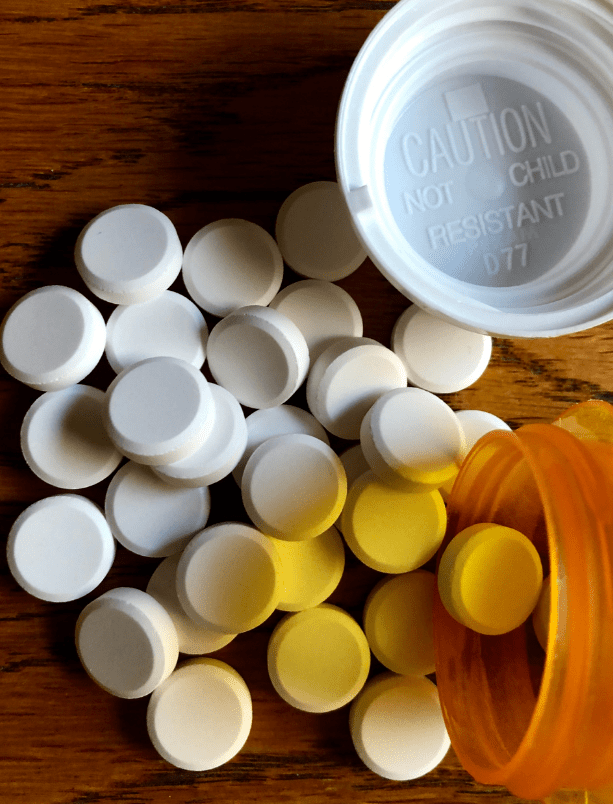How Safe Is Adderall?
What Is Adderall?
Adderall is the brand name for a prescription drug that contains the medicines amphetamine and dextroamphetamine. It is a stimulant, meaning it has an activating effect on the central nervous system. Adderall was approved by the Food and Drug Administration (FDA) in 2001, and is used to treat ADHD. However, it is often taken—and thus abused—by individuals who do not have a prescription. Adderall is categorized by the Food and Drug Administration (FDA) as a Schedule II drug, meaning that while it is effective medically, it also has a high potential for addiction.
How Safe Is Adderall?
Adderall is generally considered safe for those it is intended to treat. However, the effects can be dangerous for individuals who are not prescribed the medication.
For people diagnosed with attention-deficit hyperactivity disorder (ADHD), Adderall helps to improve concentration and focus. It can, however, have other effects as well, even for those with ADHD.
One study titled, “Psychosis with Methylphenidate or Amphetamine in Patients with ADHD” studied 337,919 adolescents and young adults who received a prescription for a stimulant for ADHD. The study concluded that among adolescents and young adults with ADHD who were receiving prescription stimulants, new-onset psychosis occurred in approximately 1 in 660 patients. Amphetamine use was associated with a greater risk of psychosis than methylphenidate.
Some cardiovascular problems have been noted, mostly by individuals who have taken Adderall for prolonged periods of time, and in excess. The most common ADHD medication cardiovascular problems reported are hypertension, which is high blood pressure, and tachycardia, which is irregular heart rate. In healthy adults with no heart disease, the chance of Adderall causing new heart problems is low, but it could be riskier if you have an existing heart condition.
Side Effects of Adderall Abuse
Adderall may have mild side effects, such as reduced appetite, even for individuals who are not abusing the drug. However, when abused, Adderall’s side effects can be detrimental to health and even dangerous. It is important to be aware of the effects of Adderall, so you know what to expect and when seeking medical attention may be appropriate or necessary.
Short-term effects of Adderall use or abuse may include:
- Loss of appetite
- Rush of euphoria
- Increased focus
- Insomnia
- Exaggerated shifts in mood
- Restlessness
- Anxiety
- Rapid heart rate
- Irregular heartbeat
- Increased blood pressure
- Cardiac arrest
- Seizures
How Safe Is Adderall Withdrawal?
For some medications, it can be dangerous or even life-threatening to abruptly stop taking them. If you have been regularly taking Adderall, ceasing to take it cold turkey will likely induce some withdrawal symptoms.
Withdrawal symptoms for Adderall may include:
- Irritability or agitation
- Depression
- Difficulty sleeping
- Fatigue
- Stomach aches
- Nausea or vomiting
Signs of withdrawal generally show up within a day or two of not taking Adderall, and can last for a week or up to several weeks. To avoid intense withdrawal symptoms and ensure a smoother, safer weaning off of Adderall, it is recommended to speak with your doctor about tapering off the drug rather than quitting abruptly. Particularly for individuals with underlying health conditions, abrupt shifts in medication may trigger other health issues.
Need Help With Addiction? We Can Help
Addiction can affect anyone. If you or a loved one are currently living with addiction or alcoholism, help is available! We encourage you to reach out to the professionals at Oasis Recovery to learn more about our personalized treatment programs and mental health services. Oasis Recovery was founded from firsthand experience of addiction and recovery, with a mission of providing a space where people can heal from addiction in a compassionate, creative, open-minded, and heart-centered environment. We believe recovery is always possible. Our experts work with you to design a treatment plan that fits your needs. Common treatment programs include:
- Intensive Outpatient Programs (IOP)
- Full-time Addiction Treatment on campus
- Aftercare Services
Contact us today for more information about how our programs and services can help you get your life back on track.











